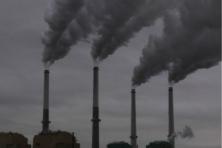Ridding ourselves from our dependence on fossil fuels is a big undertaking, not least because our transportation systems—cars and trucks—remain overwhelmingly powered by petroleum. But solving our climate crisis requires us to wean ourselves from the dirty stuff. Happily, recent developments in advanced biofuels hold great promise for helping cut back on dirty oil, and both Washington and Oregon are considering policy initiatives—clean fuels standards—that will drive investments in such low-carbon alternatives.
Biofuels Digest recently called 2014 the Year of Steel. Already this year, the first commercial-scale cellulosic biofuel facilities have come online in the Midwest, mirroring growth around the world. The next generation of sustainable, homegrown energy is here. Public policy that recognizes the economic, environmental and public health benefits of sustainable biofuels is essential for creating markets for clean fuels and stimulating investment in bringing technologies to scale. A clean fuels standard, under consideration in Washington and Oregon right now, promises to provide stable, long-term incentive for advanced biofuels.
A clean fuels standard (AKA low-carbon fuel standard) establishes pollution limits for transportation fuels sold in a jurisdiction. The program requires oil companies to gradually reduce carbon pollution from gasoline and diesel by 10% over 10 years. Oregon already has a clean fuels program in development, and a broad coalition of businesses and public advocates will be asking the legislature to lift a “sunset” provision in the next legislative session to move the program forward. Washington is currently considering whether to initiate rulemaking to implement a clean fuel standard. Our neighbors to the north, in British Columbia, and to the south, in California, are already enjoying industry growth sparked by these smart policies.
A clean fuels standard would open up a huge opportunity for low-carbon fuels, such as those being developed by Advanced Hardwoods Biofuels Northwest (AHB) and its coalition partners. As a technology neutral policy, a clean fuels standard drives investments toward fuels that are the lowest carbon and the most cost effective. By creating a fair market for clean fuels, the policy will give consumers more choices and direct investments to local businesses. This isn’t just good common sense, it’s also good economics.
The Washington state Office of Financial Management has been hard at work this summer conducting an in-depth economic analysis of a clean fuels standard with input from a group of technical consultants, transportation experts, and public interest and industry stakeholders. The results of their study help answer questions about what a clean fuels standard means for advanced biofuels in the Northwest. Not surprisingly, their analysis (currently available in draft form, the final is expected November 14) confirms that the clean fuels industry stands to benefit, along with the broader regional economy.
The analysis looks at four different scenarios of varying mixes of clean fuels and vehicles. One scenario looked at more electric vehicles, others looked at increases in sustainable biofuels of different types and volumes. In all scenarios, a diverse blend of clean fuels are used to replace a share of petroleum. While not comprehensive, the scenarios do a decent job of sketching out possible futures. But no matter the scenario details, each run of the numbers found economic benefits in every major indicator. Let’s just turn through some of the headline numbers (all results represent the difference from the baseline):
- Gross State Product: $130 million to $300 million
- Personal Income: $82 million to $240 million
- Employment: 1,130 – 2,870 new jobs
- Pollution: reductions in carbon, NOx, and particulate emissions
Most relevant to biofuel producers, the study found that the policy would drive investment in the regional production of advanced biofuels as well as other clean alternatives, such as electric vehicles and renewable natural gas. A clean fuels standard provides incentives for locally produced fuels, driving new investment in the state and region – including feedstock producers in farms and forests, and workers who will construct and run new biofuel production facilities. The analysis even anticipates hundreds of millions of dollars invested in regional cellulosic production, under a number of scenarios. These are long-term infrastructure investments create family wage jobs putting steel in the ground and creating the next generation of energy and sustainable growth.
This recent Washington study confirms numerous academic studies and the actual results on the ground in California and BC, where these policies are already working to create cleaner alternatives.
The work of AHB and its partner organizations is laying the groundwork for technologies that will power low-carbon growth in our region in the coming years, and provide exportable skills and technologies. Smart policies like a clean fuels standard will help bring these technologies to scale and create a sustainable foundation for 21st century prosperity.
Please contact Ross or Ben to learn more or find out how you can help, or join hundreds of businesses, local government leaders, non-profits and others who are supporting these policies at www.cleanfuelsjobs.org (Washington) and www.CleanFuelsWork.com (Oregon).
This article is based on a webinar presented to Advanced Hardwoods Biofuels Northwest on October 21. To view the slides from this presentation, click here.





